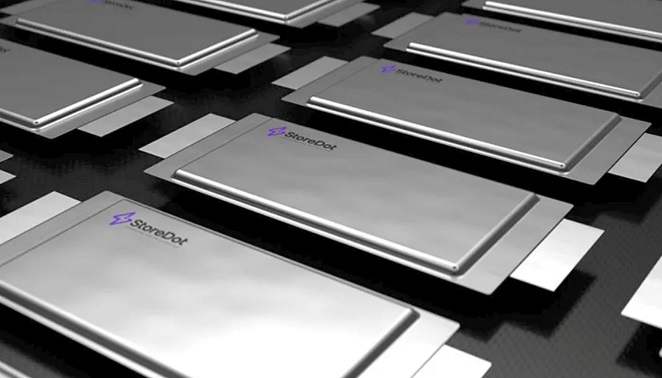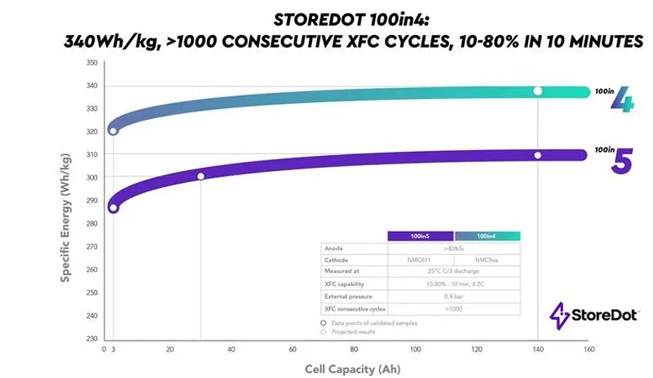Charging an electric car from 10 to 80% in just 10 minutes will be possible in 2026
Storedot, an Israeli startup, has verified that its development of batteries featuring a dominating silicon anode is going well. Its first generation of batteries is expected to be released this year. A generation that can help you regain 160 km of independence in only five minutes. However, the business has acknowledged that the following phase, which would cut the duration to 4 minutes, has been expedited and will happen earlier than anticipated.

The key is that electric vehicles can continuously charge their batteries more quickly. As ultra-fast networks with powers above 300 kW proliferate, charging times for combustion engine models are becoming closer to refueling. But you’ll need batteries that can handle even higher levels if you get the most out of it.
That is the situation with CATL’s Qilin batteries, which have a 4C charge rate and are deployed in several Chinese electric vehicles. That entails having access to 400 kW of power.
160 km of autonomy in 4 minutes
It has been verified by Storedot that the second generation of XFC cells will be out a little earlier than expected. An average electric car will obtain 80% of its charge in just 10 minutes thanks to a chemistry that allows 160 km to be recovered in 4 minutes, which is 10% better than the previous version.

According to Storedot, production will start a year earlier than expected, and the company has rescheduled the start of cell deliveries to its partners for 2026.
Its semi-solid composition will be crucial in enabling it to achieve a high energy density—the firm estimates 340 Wh/kg—far beyond that of LFP and NCM cells.
The CEO of StoreDot, Doron Myersdorf, claims that the company’s innovative new battery should also have a long lifespan because it has achieved 1,000 consecutive charge/discharge cycles in prototypes, a feat that will be improved upon in the final product.
Something that prepares the way for the upcoming generation, known as 100in3, which was predicted to arrive in 2028 and have an energy density of 450 Wh/kg. It can accomplish 160 km of autonomy in just 3 minutes and will enable the charging process to be lowered to 80%, which, based on these estimates, would take about 8 minutes.
Nearly the amount of time it takes a motorist of a petrol or diesel model to go to the service station, pay for their fuel, and refill.
Related Post
